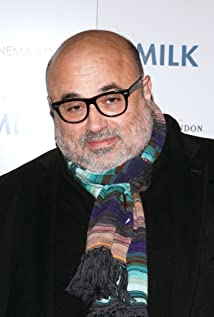Harris Savides was born on September 28, 1957 in New York City, New York, USA. He is known for Elephant (2003), Zodiac (2007) and Greenberg (2010). He was married to Medine Chenet. He died on October 9, 2012 in Manhattan, New York City.Spouse Medine Chenet (1983 - 9 October 2012) (his death) (1 child) Has a degree from School of Visual Arts, New York City in film and still photography.
He is the only person to date to win three MTV Video Music Awards for Best Cinematography and the only person to win two in a row (for "Rain" by Madonna and "Everybody Hurts" by R.E.M.).
Had been a member of the American Society of Cinematographers (ASC) since 1999.
Father of Sophie Savides.
Cinematographer Harris Savides (1957-2012) had bit parts as an actor in at least 3 films he worked on: In Se7en (1995) he played the '911 Operator', in The Game (1997) he played 'Ankles' and in Illuminata (1998) he had an uncredited part as a theater patron who walks up to John Turturro's character, a playwright, and says to him: "Did you see the play? I hated it.".I light a room and let the people inhabit it, as opposed to lighting the people. It's more organic. You want to protect the people you're working with, and there's a constant battle between the best light for their face and the best light for the story. You don't want to get to the point where the audience notices the light.[2004]
I'm always wary of the fact of making things too beautiful and too photographic. And I tend to shy away from glamorous lighting or, you know, unmotivated lighting. It's very easy to let the form, the technique overshadow the content, so I just wanna be careful of that. I've been to very beautiful movies...some of the most beautiful movies I've seen haven't been very good.[2009]
I think the best cinema is cinema with images and not words. That's the purest form of cinema. The most powerful cinema I've seen has been cinema that is just images, great images. I mean, that's the trick: To try and tell it cinematically. And that's what makes setting up a scene and doing a scene very difficult. It's really easy - I think what people are taught, is to do these, especially in dialogue scenes, do a two-shot and then go in... - and I try to avoid that all the time. And I try to let it all become one thing.
After working with Gus [director Gus Van Sant], I can't go back to just loving the visuals. On one level, I don't want the work to be photographic. But I'd also have trouble doing a comedy, where there's so much that needs to be delivered verbally. It's about having an opportunity to tell the story without words.[2004]

